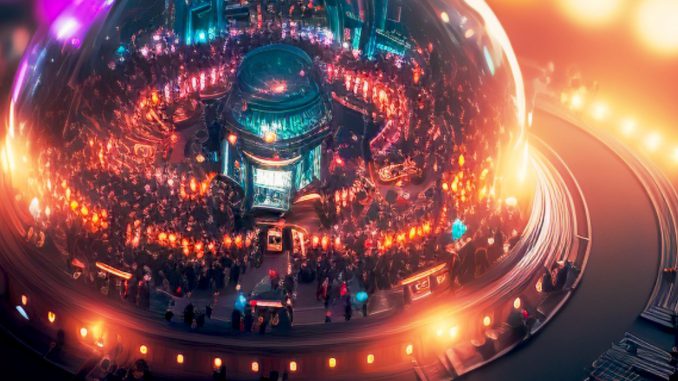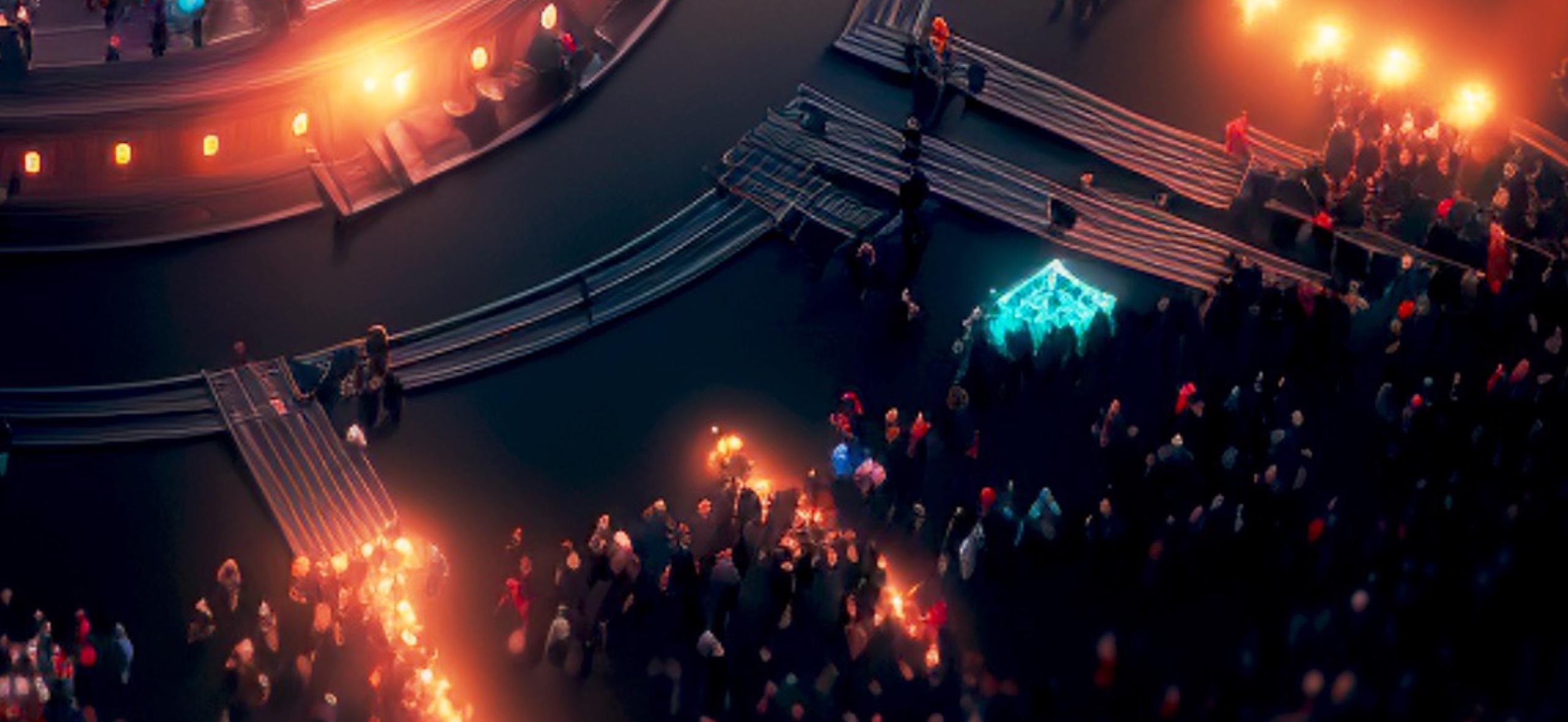
By Jeffrey Gogo
Fifty-two years later, John has imagined himself again, this time in another digital dimension. The singer who has sold over 300 million records, now feels that it is time the metaverse became his big stage.
John collaborated with Roblox, a gaming and virtual reality platform which allows for concerts in the metaverse. He announced that at the end of his tour in 2023, he will host a 10-minute virtual live show titled the ‘Elton John Presents: Beyond the Yellow Brick Road’.
Explaining the idea, John said reaching fans through the metaverse offers him wider creative space than physical spaces. “It’s [metaverse] a new world that allows fans and creators to be themselves completely,” he told Hypebae.
Music concerts: Artists use metaverse to connect with fans
Elton John is one of the early adopters in music who are performing on the metaverse. Travis Scott has always had a futuristic approach to his music. In 2020, he has held the Fortnite concert in the metaverse, which had about 28 million attendees.
Artists are using the metaverse to connect with their fans through several activities including virtual concerts and merchandise sales. There is also a strong push by musicians and music companies to combine experiences involving games and music.
Experts expect that the number of those performing on the metaverse will increase, as it allows artists to perform for a global audience without leaving their homes – a fair break from the hectic touring schedules they follow.
Or Manor, a computer systems analyst, wrote a LinkedIn article explaining how artists are set to profit more from the metaverse structure.
“Concerts and performances at Metaverse could lead to a new wave of high-profile concert adoptions coming to Metaverse near you, allowing artists to reap the rewards of touring without leaving home,” Manor said.
According to Fortune, Apple may be caving to pressure from regulators in Europe, and that could be a good thing for NFTs. Bloomberg reported this week that the tech giant may open up its restrictive operating system, which allows it to take a 30% cut on all App Store sales, to external apps.
Artists who pursue this route are likely to be paid using non-fungible tokens, or NFTs. The technology has started to extend to other continents.
In October, MTN, one of the largest mobile networks in Africa, funded the establishment of an African metaverse for music, art and dance. It built on interest from artists who have struggled to break into the streaming world and are seeking metaverse refuge.
Nigerian music star BNXN (formerly called Buju) held a listening session in the metaverse in August this year. To attend, users needed to have NFTs, a primary currency in the metaverse.
Metaverse: Experiment gone too far

However, not everyone is excited with the developments. The Guardian’s video game editor Keza MacDonald believes the metaverse is an experiment gone too far.
“The tech world has been overtaken by the seductive idea of a virtual utopia, but what’s on offer looks more like a late-capitalist technocratic nightmare,” she wrote.
MacDonald revealed she now doubts her faith in humanity because of the way the metaverse has been packaged and adopted.
“What gaping deficiency are we living with that makes us feel the need to spend serious money on tokens that prove ownership of a procedurally generated image, just to feel part of something?” said MacDonald.
“This is all happening while the Earth continues to heat up, and at enormous environmental cost. I can’t help but wonder if these giant companies are so intent on selling us and the markets on the idea of a virtual future in order to distract us all from what they are doing to the real one,” she added.
According to Forbes, tech giants have already invested trillions into its genesis, and soon it will be a reality—or at least a virtual one. By 2024, the metaverse is predicted to grow into a $783.3 billion market.
The metaverse drive is however going beyond art. Students at the University of Berkeley recently leveraged the Minecraft game to generate a virtual campus and convene a virtual graduation ceremony.
All participants masked themselves as Minecraft figures and “acted in the finishing custom of throwing hats.” People may at some point in the future live through an out-of-body experience courtesy of the metaverse. But it remains to be seen whether musical concerts will catch on.
Produced in association with MetaNews.
Recommended from our partners
The post Can Music Concerts In The Metaverse Attract Fans? appeared first on Zenger News.

